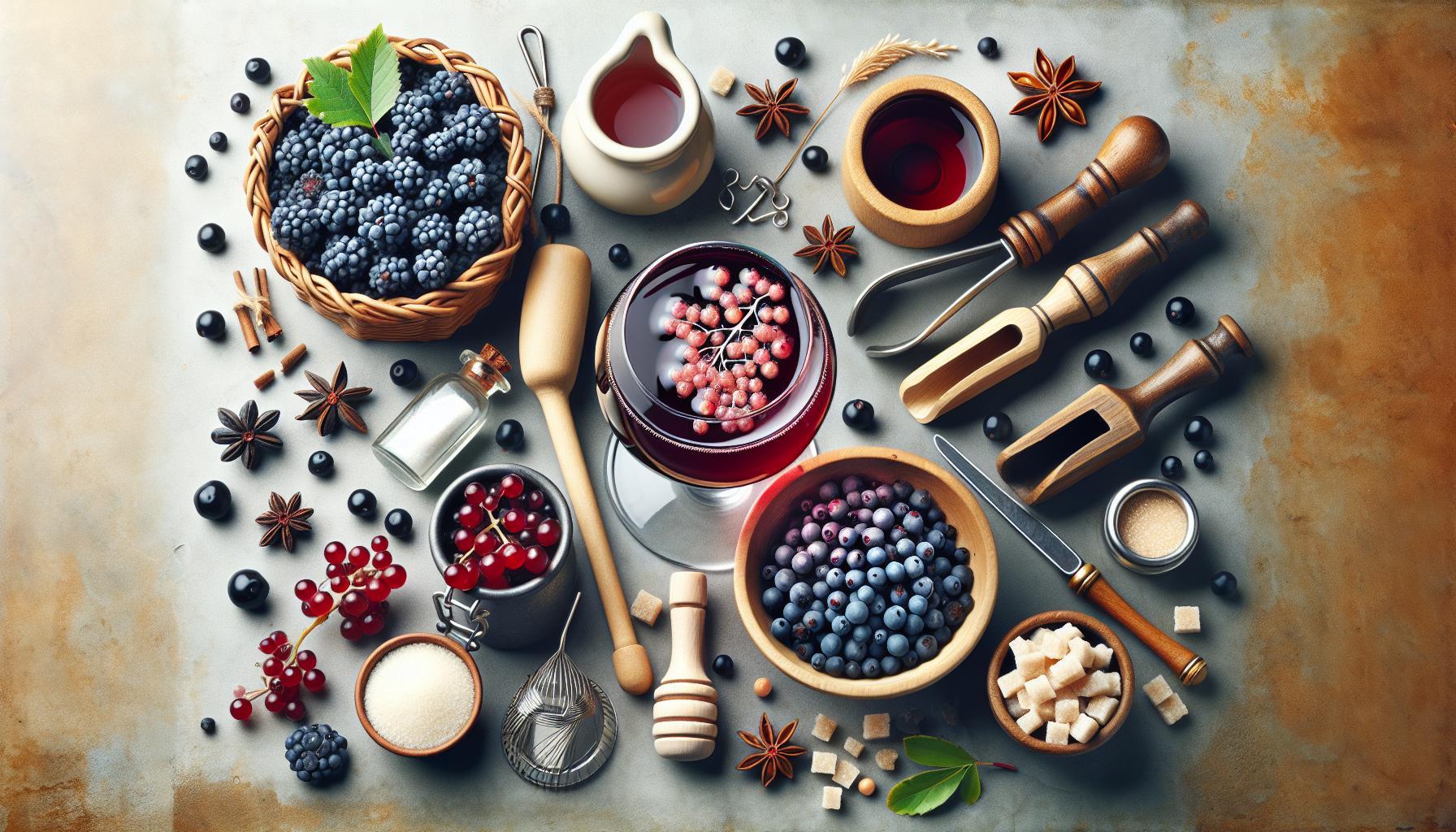There’s something wholly enchanting about the deep, rich taste of elderberry wine. This fruit elixir, a coveted classic from the verdant landscapes of New Zealand, tantalizes the palate with its perfect blend of sweet and tart. On a frigid winter’s night or a balmy summer’s eve, an elderberry wine recipe NZ style offers a unique taste that ensures a delightful dining experience.
Ingredients List
For our kiwi-flavoured vino, you’ll require:
– 2 kg ripe elderberries
– 1 kg granulated sugar
– 1.5 liters water
– 1 teaspoon yeast nutrient
– 1 sachet red wine yeast
– 2 lemons (zest and juice)
Instructions
1. Begin by stripping all the elderberries from their stems. Do this mindfully without bruising or crushing them.
2. Transfer the elderberries into a large, sterilized pot. Add in the lemon zest and juice.
3. Boil the water and sugar in a separate pan until the sugar has fully dissolved. Pour this simmering syrup on your elderberries.
4. Once the mixture has cooled down, stir in yeast nutrient and red wine yeast.
5. Let this mixture sit for about 7 to 10 days, stirring daily to encourage fermentation.
6. Strain the mixture into a sterilized demijohn using a muslin cloth. Seal it with an airlock.
7. Patiently wait for the fermentation process to be completed. This might take a few months.
8. Once the fermentation ceases, transfer your NZ-inspired elderberry wine into cork-sealed bottles.
9. For the best flavour, let the wine age for at least a year.
Cooking Time & Servings
This recipe will yield approximately 8 bottles of wine and requires a significant amount of time due to the nature of the fermentation process and ageing. From preparation to bottling, you can expect to set aside an hour. However, the ageing process will take 12 months minimum for the best results.
Nutritional Information
Apart from the tantalizing taste, elderberry wine packs a noteworthy nutritional punch. Loaded with vitamins A, C, and E, it’s also brimming with flavonoids which supports a healthy immune system. Though it’s hard to pinpoint the exact values due to variables in the fermentation process, it’s safe to say that elderberry wine certainly contributes to a balanced diet.
Tips and Tricks
To create your perfect elderberry wine, always choose fully ripened elderberries. If elderberries are rare in your area, blackberries can serve as a plausible substitute. Practicing patience is also key; a well-aged wine can turn an ordinary meal into an extraordinary feast.
As our elderberry culinary adventure comes to a triumphant close…
…let’s remember that patience, like good wine, has a remarkable maturity that only time can bring. Share your elderberry wine journey with us on social media, ask your queries, or drop your comments. We are always thrilled to exchange notes with fellow wine lovers.
Frequently Asked Questions
Q: Can I use dried elderberries?
A: Certainly! Just ensure to soak them overnight and adjust the quantity accordingly.
Q: What if I don’t have a demijohn and airlock?
A: You could also use sterilized glass bottles. Just ensure they’re tightly sealed.
Q: Can I drink the wine before it’s aged for a year?
A: Definitely! However, giving it the full time to age will enhance both the flavors and texture.
Q: Can I use a different type of yeast?
A: Indeed. However, red wine yeast is recommended for an authentic taste.
Q: Is it normal for the wine to have sediment?
A: Absolutely. It’s a natural result of the fermentation process. You can decant the wine before serving to separate it.
Bring a little corner of New Zealand into your home with this elderberry wine recipe. The sweet-sour melody will play a symphony on your palate. Happy brewing!


